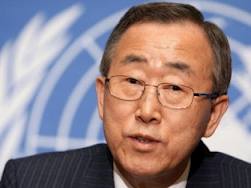
Over the past century, we have made undeniable progress along the path of inclusion.
Yet far too many groups and individuals face far too many obstacles. Women have the right to vote almost everywhere, but remain hugely under-represented in parliaments and peace processes, in senior government posts and corporate boardrooms, and in other decision-making positions. Indigenous people frequently face discrimination that denies them the opportunity to make full use of their guaranteed rights or fails to take account of their circumstances. Religious and ethnic minorities – as well as people with disabilities or those with a different sexual orientation or political opinion – are often hampered from taking part in key institutions and processes. Institutions and public discourse need to represent societies in all their diversity.
More generally, in several parts of the world, we have seen alarming threats to hard-won gains in democratic governance. In some countries, civil society groups face growing pressures and restrictions. Legislation has been introduced specifically targeting civil society organizations and making it almost impossible for them to operate. Champions of democracy have encountered new confrontational measures. We should all be troubled by such backsliding.
Even in societies with a good track record, there is room for improvement. No country has succeeded in ensuring that all its inhabitants are able to participate fully in public affairs, including the right to be elected to public office and to have equal access to public services. Enacting new rights or removing unjust laws is not always sufficient. Too often, discrimination persists in practice, creating barriers and mindsets that can be hard to overcome.
Vibrant civil society groups are among the keys to the well-being and functioning of any nation, and the United Nations deplores measures taken to suppress them. That is why, on this Human Right Day, the United Nations is highlighting the right to participate and the associated rights that make it possible – freedom of expression and opinion, and peaceful assembly and association.
International law is clear: No matter who you are, or where you live, your voice counts. On this Day, let us unite to defend your right to make it heard.




















































